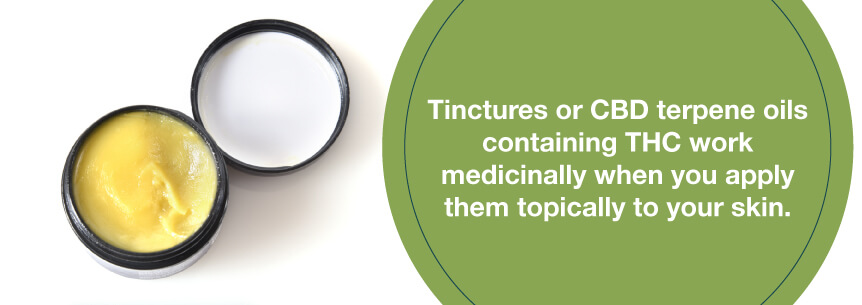
Genital herpes, also known as herpes simplex type 2 (HSV-2) is a virus that commonly occurs near the sex organs and then spreads through close personal contact. Genital herpes is a sexually transmitted disease. According to the Centers for Disease Control and Prevention (CDC), at least one out of every six people between the ages of 14 and 49 in the U.S. have a genital herpes infection.
Herpes doesn’t have a cure. However, if you are a carrier, life can be easier with herpes medications. Three common types of medications doctors prescribe for herpes are:
Unfortunately, these herpes medications are extremely costly and aren’t always effective. They also often come with negative side effects like:

Research shows THC — cannabis’s psychoactive cannabinoid — helps modulate the immune response of your body and its T-cells to counteract the herpes virus and keep it from replicating and spreading. According to a study published in the peer-reviewed journal Experimental Biology and Medicine, THC made the herpes virus ineffective because it inactivated it and reduced its viability by 80 percent. Another study published in BMC Medicine found that THC targeted the cellular and viral mechanisms of the virus needed for transmission.
Find A Doctor Find A Dispensary
Medical marijuana for genital herpes helps patients in numerous ways:
Additionally, dermatologists usually prescribe patients with the herpes virus an antiviral and corticosteroid ointment or an antibiotic to reduce their symptoms and kill the virus. Marijuana oils mimic this ointment.
If you’re considering using marijuana for genital herpes, below are five strains to consider:
You can easily vape, smoke or eat cannabis to help reduce herpes-related pain. Tinctures or CBD terpene oils containing THC work medicinally when you apply them topically to your skin. Topicals may include:

Physicians can make a recommendation if they believe you’d benefit from adding medical marijuana to your overall treatment plan and if you have a qualifying condition. For instance, headaches and chronic pain are qualifying conditions for medical marijuana in some states — and genital herpes can cause both.
You shouldn’t have a hard time finding a doctor to give you this recommendation for medical pot as long as it’s legal in your state. Additionally, in some states, you may need a face-to-face appointment with a doctor. In others, a video consultation online is enough to obtain your recommendation.
Once you find out if marijuana for genital herpes is legal in your state, any licensed doctor can provide you with a recommendation. Then, you’ll be all set to seek out a medical marijuana doctor and find a dispensary to purchase your cannabis treatment. Why go even one more day without relief?
Find A Doctor Find A Dispensary
Genital herpes is a virus primarily spread through sexual contact. One of the things that makes it so difficult to prevent is that it’s highly contagious and transmissible even without visible sores.
There is no cure for the virus, but medication can relieve the symptoms and help reduce the risk of spreading the infection to others. Condoms have been instrumental in helping to reduce the spread of the herpes simplex type 2 infection. However, Avert — a leading organization promoting education about HIV and other STDs — warns even condoms do not provide full protection from the spread of genital herpes.
Genital herpes transmits primarily through bodily fluids, including:
Since men and women can carry the virus without even knowing they have it, you should be careful with all sexual partners and protect yourself. And it’s essential to get tested yourself the instant symptoms appear so you do not risk spreading the virus to others.
The CDC reports it’s possible for oral herpes, caused by herpes simplex virus one (HSV-1), to transmit to the genitals through oral sex. This means some cases of genital herpes result from exposure to HSV-1 rather than HSV-2. HSV-1 is the virus which causes some people to develop cold sores or fever blisters on their lips. Most people with HSV-1 get infected during childhood from non-sexual exposure.
An active herpes infection can lead to breaks in the skin of your mouth, vagina and rectum, which in turn provide gateways for HIV to enter your body. If you have a sexual partner who has both HIV and genital herpes, the risk of becoming infected is higher for this reason, according to the CDC.
The problem with genital herpes, and one of the primary reasons why it’s so prolific in modern society, is that you can get infected and spread the disease without having any overt symptoms. The first outbreak is typically mild and follows a pattern similar to the one listed below:
Other symptoms you may experience during an initial herpes outbreak, along with those listed above, include the following:

Some people complain of general flu-like symptoms when experiencing a herpes outbreak. These symptoms can last up to 20 days before clearing up. However, outbreaks will occur again in time. Symptoms of a reoccurrence include things like:
The good news about reoccurrences is that your body becomes more efficient at fending off the virus over time. This means the duration and severity of the infection will diminish in subsequent outbreaks.
There are two types of herpes:
While the herpes virus can be traced anecdotally back to Ancient Greece, it wasn’t recognized officially by scientists until Emile Vidal’s contributions in 1893. It also wasn’t labeled as an infectious disease until 1919, with confirmation of its infectiousness by Lowenstein. Researchers at the University of California believe they’ve traced the origins back even further to chimpanzees living six million years ago.
Rare physical side effects of genital herpes can happen when the blisters become infected and allow the virus to spread to other parts of the body, such as your hands, lips or fingers.
Women who are pregnant should inform their doctor right away if they have genital herpes. If there is an active infection at the time of delivery, your doctor may choose to perform a cesarean section rather than risk transmitting the virus to the baby. Mayo Clinic warns women with active infections at the time of delivery may pass the virus to their babies, which can result in any of the following:
Don’t take this condition lightly if you are pregnant.
While some of the effects of genital herpes result in physical pain, particularly in the genital regions, and can increase risks for other sexually transmitted diseases, the most profound impact can be mental and emotional.

Some people avoid talking about having genital herpes because of embarrassment. They can suffer significant emotional difficulties and even depression as a result. Even though it is quite common, few people will ever discuss it with friends or family.
Many people feel ashamed about their having genital herpes and may even stop dating or pursuing intimate relationships for fear of infecting another party unknowingly or having to reveal their condition. Some of the feelings you may experience while adjusting to the news of your infection, according to the American Sexual Health Association (ASHA), include the following:
It’s possible to have HSV-2 and still manage a satisfying sexual life. The key is being with a partner you trust enough to be honest and open with. The other vital component is following certain protocols to manage your condition and to protect your partner.
According to the American College of Obstetricians and Gynecologists, genital herpes is a virus that affects nearly one in every six adults — accounting for more than 50 million cases in the U.S. alone — and is more common among women than men.
The American Sexual Health Association cautions that because the symptoms of genital herpes are often unnoticed until outbreaks occur, nearly 90 percent of people infected with HSV-2 don’t know they have it.
Global estimates indicate two-thirds of the world’s population have an HSV-1 infection, or more than 3.7 billion people. Among those, 140 million people are infected with genital HSV-1.
Physicians routinely order antiviral medications to treat HSV-2, believing these medications accomplish the following:
Most medications prescribed for HSV-2 have few, if any, side effects and are mild in nature when they do occur.
A new drug, Pritelivir, is on the horizon for HSV-2 patients. It can not only help lessen symptoms and outbreak frequency, but also help reduce the likelihood of spreading HSV-2 to their partners. While it doesn’t completely eliminate the possibility of transmitting the infection, many thrilled patients welcome this breakthrough.
The key to remember for anyone who is living with HSV-2 is that the condition is manageable. It’s possible to have a satisfying sex life with genital herpes as long as you take appropriate precautions.